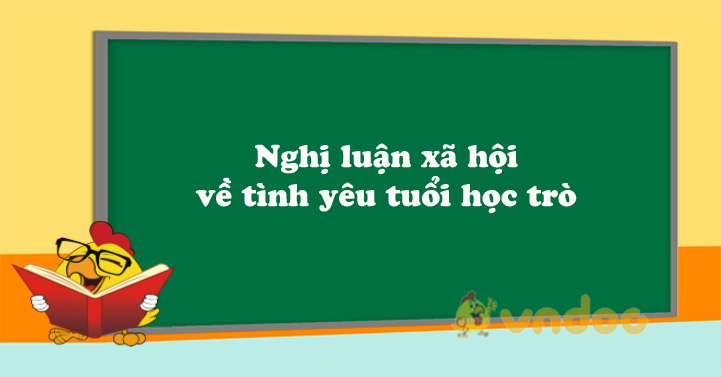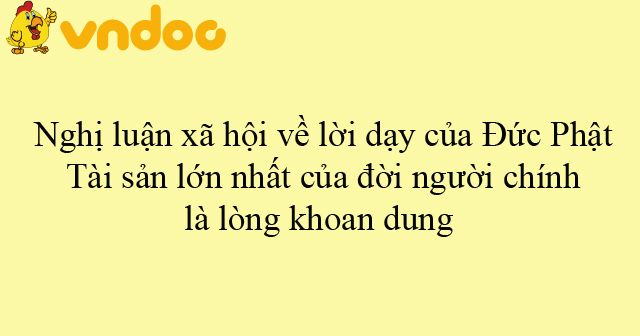|
ĐỀ SỐ 5 ««««« |
ĐỀ THI THỬ THPT QG NĂM HỌC 2020 Môn: Tiếng anh Thời gian làm bài: 60 phút, không kể thời gian phát đề |
Mark the letter A, B, C, or D on your answer sheet to indicate the word whose underlined part differs from the other three in pronunciation in each of the following questions.
Question 1. A. courage B. honour C. favour D. labour
Question 2. A. extinction B. exhibit C. exhaustion D. exist
Mark the letter A, B, C, or D on your answer sheet to indicate the word that differs from the other three in the position of primary stress in each of the following questions.
Question 3. A. explain B. involve C. purpose D. advise
Question 4. A. untrustworthy B. diversity C. encouraging D. inattentive
Mark the letter A, B, C, or D on your answer sheet to indicate the correct answer to each of the following questions.
Question 5. At first Susan was trained to be __________ scriptwriter, but later she worked as __________ secretary.
A. the / a B. a / a C. the / the D. a / the
Question 6. If we leave here now, we can drive half the distance before we stop __________ lunch.
A. for having B. having had C. having D. to have
Question 7. Look! The yard is wet. It __________ last night.
A. must have rained B. couldn’t have rained
C. must rain D. should have rained
Question 8. It is recommended that he __________ this course.
A. took B. takes C. take D. taking
Question 9. It was not until 1915 __________ the cinema became an industry.
A. what B. that C. when D. how
Question 10. Housework is less tiring and boring thanks to the invention of __________ devices.
A. environment-friendly B. time-consuming
C. labor-saving D. pollution-free
Question 11. The judge __________ murderer to a lifetime imprisonment.
A. prosecuted B. entenced C. convicted D. accused
Question 12. __________ migrate long distances is well documented.
A. That it is birds B. That birds
C. Birds that D. It is that birds
Question 13. Bill asked his sister __________ .
A. where would she go the following day
B. where you will go tomorrow
C. where you would go tomorrow
D. where she would go the following day
Question 14. Lan was __________ of the two sisters.
A. the clever B. as clever as C. he cleverer D. the cleverest
Question 15. The Government has brought __________ a new law in an effort to prevent further
environmental deterioration.
A. in B. about C. up D. on
Question 16. Are you taking __________ this semester?
A. house economics B. home economic
C. house economic D. home economics
Question 17. It gets __________ when the winter is coming.
A. cold and cold B. old and colder
C. more and more cold D. colder and colder
Question 18. I don’t remember __________ of your decision to change our plan.
A. to tell B. being told C. telling D. to be told
Mark the letter A, B, C, or D on your answer sheet to indicate the word(s) CLOSEST in meaning to the underlined word(s) in each of the following questions.
Question 19. Relaxation therapy teaches us not to fret over small problems in life.
A. get involved in B. worry about C. look for D. get angry about
Question 20. I’m sorry I can’t go to the movies with you this weekend - I’m up to my ears in work.
A. very busy B. very bored C. very scared D. very idle
Mark the letter A, B, C, or D on your answer sheet to indicate the word(s) OPPOSITE in meaning to the underlined word(s) in each of the following questions.
Question 21. There has been no discernible improvement in the noise levels since lorries were banned.
A. clear B. obvious C. thin D. insignificant
Question 22. Mary decided to remain celibate and devote her life to helping the homeless and orphans.
A. single B. married C. divorced D. separated
Mark the letter A, B, C, or D on your answer sheet to indicate the option that best completes each of the following exchanges.
Question 23. Mary invited her friend, Sarah, to have dinner out that night and Sarah accepted.
- Mary: “Shall we eat out tonight ?”
- Sarah: “______________.”
A. That’s a great idea B. That’s acceptable
C. You are welcome D. It’s kind of you to invite
Question 24. - John: “I didn’t pass my driving test.”
- Anna: “______________!”
A. Better luck next time B. So poor
C. Congratulations D. That was nice of them
Read the following passage and mark the letter A, B, C, or D on your answer sheet to indicate the correct word or phrase that best fits each of the numbered blanks from 25 to 29.
Welcome to the Netherlands, a tiny country that only extends, at its broadest, 312 km north to south, and 264 km east to west - (25) _________ the land area increases slightly each year as a result of continuous land reclamation and drainage. With a lot of heart and much to offer, ‘Holland,’ as it is (26) _________ known to most of us abroad - a name stemming from its once most prominent provinces - has more going on per kilometer than most countries, and more English-speaking natives. You’ll be impressed by its (27) _________ cities and charmed by its countryside and villages, full of contrasts. From the exciting variety on offer, you could choose a romantic canal boat tour in Amsterdam, a Royal Tour by coach in The Hague, or a hydrofoil tour around the biggest harbour in the world - Rotterdam. In season you could visit the dazzling bulb fields, enjoy a full day on a boat, or take a bike tour through the pancake-flat countryside spiced with windmills. The possibilities are countless and the nationwide tourist office is on hand to give you information and help you (28) _________ reservations. You’ll have (29) _________ language problems here, as the Dutch are true linguists and English is spoken here almost universally.
Question 25. A. so B. despite C. in spite of D. although
Question 26. A. regularly B. occasionally C. commonly D. unusually
Question 27. A. historic B. historical C. historically D. historian
Question 28. A. sit B. catch C. do D. make
Question 29. A. few B. a few C. little D. a little
Read the following passage and mark the letter A, B, C, or D on your answer sheet to indicate the correct answer to each of the questions from 30 to 34.
Although speech is the most advanced form of communication, there are many ways of communicating without using speech. Signals, signs, symbols, and gestures may be found in every known culture. The basic function of signal is to impinge upon the environment in such a way that it attracts attention, as. For example, the dots and dashes of a telegraph circuit. Coded to refer to speech, the potential for communication is very great. Less adaptable to the codification of words, signs also contain meaning in and of themselves. A stop sign or a barber pole conveys meaning quickly and conveniently. Symbols are more difficult to describe than either signals or signs because of their intricate relationship with the receiver’s cultural perceptions. In some cultures, applauding in a theater provides performers with an auditory symbol of approval. Gestures such as waving and handshaking also communicate certain cultural messages.
Although signals, signs, symbols, and gestures are very useful, they do have a major disadvantage. They usually do not allow ideas to be shared without the sender being directly adjacent to the receiver. As a result, means of communication intended to be used for long distances and extended periods are based upon speech. Radio, television, and the telephone are only a few.
Question 30. Which of the following would be the best title for the passage?
A. Gestures B. Signs and signals C. Speech D. Communication
Question 31. What does the author say about speech?
A. It is dependent upon the advances made by inventors.
B. It is the most advanced form of communication.
C. It is necessary for communication to occur.
D. It is the only true form of communication.
Question 32. All of the following are true EXCEPT __________.
A. Signals, symbols, signs and gestures are found in every culture
B. Signals, symbols, signs and gestures are very useful
C. Signals, symbols, signs and gestures also have disadvantages
D. Signals, symbols, signs and gestures are used for long distance contact
Question 33. The word “it” in paragraph refers to __________.
A. way B. environment C. function D. signal
Question 34. Why were the telephone, radio, and television invented?
A. Because people were unable to understand signs, signals, and symbols.
B. Because people wanted to communicate across long distances.
C. Because people believed that signs, signals, and symbols were obsolete.
D. Because people wanted new forms of communication.
Read the following passage and mark the letter A, B, C, or D on your answer sheet to indicate the
correct answer to each of the questions from 35 to 42.
According to sociologists, there are several different ways in which a person may become recognized as the leader of a social group in the United States. In the family, traditional cultural patterns confer leadership on one or both of the parents. In other cases, such as friendship groups, one or more persons may gradually emerge as leaders, although there is no formal process of selection. In larger groups, leaders are usually chosen formally through election or recruitment.
Although leaders are often thought to be people with unusual personal ability, decades of research have failed to produce consistent evidence that there is any category of “natural leaders”. It seems that there is no set of personal qualities that all leaders have in common; rather, virtually any person may be recognized as a leader if the person has qualities that meet the needs of that particular group.
Furthermore, although it is commonly supposed that social groups have a single leader, research suggests that there are typically two different leadership roles that are held by different individuals. Instrumental leadership is leadership that emphasizes the completion of tasks by a social group. Group members look to instrumental leaders to “get things” done.” Expressive leadership, on the other hand, is leadership that emphasizes the collective well-being of a social group’s member. Expressive leaders are less concerned with the overall goals of the group than with providing emotional support to group members and attempting to minimize tension and conflict among them. Group members expect expressive leaders to maintain stable relationships within the group and provide support to individual members.
Instrumental leaders are likely to have a rather secondary relationship to other group members. They give orders and may discipline group members who inhibit attainment of the group’s goals. Expressive leaders cultivate a more personal or primary relationship to others in the group. They offer sympathy when someone experiences difficulties or is subjected to discipline, are quick to lighten a serious moment with humor, and try to resolve issues that threaten to divide the group.
As the differences in these two roles suggest, expressive leaders generally receive more personal affection from group members; instrumental leaders, if they are successful in promoting group goals, may enjoy a more distant respect.
Question 35. What does the passage mainly discuss?
A. The problems faced by leaders
B. How leadership differs in small and large groups
C. How social groups determine who will lead them
D. The role of leaders in social groups
Question 36. The passage mentions all of the following ways by which people can become leaders EXCEPT __________.
A. recruitment B. formal election process
C. specific leadership training D. traditional cultural patterns
Question 37. In mentioning “natural leaders” in the second paragraph, the author is making the point that __________.
A. few people qualify as “natural leaders”
B. there is no proof that “natural leaders” exist
C. “natural leaders’ are easily accepted by the members of a social group
D. “natural leaders” share a similar set of characteristics
Question 38. Which of the following statements about leadership can be inferred from paragraph 2?
A. A person who is an effective leader of a particular group may not be an effective leader in another group.
B. Few people succeed in sharing a leadership role with another person.
C. A person can best leam how to be an effective leader by studying research on leadership.
D. Most people desire to be leaders but can produce little evidence of their qualifications.
Question 39. The passage indicates that ‘instrumental leaders’ generally focus on __________.
A. ensuring harmonious relationships B. sharing responsibility with group members
C. identifying new leaders D. achieving a goal
Question 40. The word “collective” in the third paragraph is closest in meaning to __________.
A. necessary B. typical C. group D. particular
Question 41. The word “them” in the third paragraph refers to __________.
A. expressive leaders B. goals of the group
C. group members D. tension and conflict
Question 42. A “secondary relationship” mentioned in the last paragraph between a leader and the members of a group could best be characterized as __________.
A. distant B. enthusiastic C. unreliable D. personal
Mark the letter A, B, C, or D on your answer sheet to indicate the underlined part that needs correction in each of the following questions.
Question 43. I (A) had my motorbike (B) repair yesterday (C) but now it still doesn’t (D) work.
Question 44. Some manufacturers are not only (A) raising their prices (B) but also (C) decreasing the production of their products (D) as well.
Question 45. My husband is an ambitious person (A) who (B) is committed to (C) improve his status (D) at work.
Mark the letter A, B, C, or D on your answer sheet to indicate the sentence that is closest in meaning to each of the following questions.
Question 46. Since we had nothing else to do, we decided to go for a walk.
A. Having nothing else to do, we decided to go for a walk.
B. Have nothing else to do, we decided to go for a walk.
C. Since having nothing else to do, we decided to go for a walk.
D. Because having nothing else to do, we decided to go for a walk.
Question 47. It is possible that the fire in the ship was started by a bomb.
A. They say that a bomb started the fire in the ship.
B. The fire in the ship might have been started by a bomb.
C. It shall be said the fire in the ship had been started by a bomb.
D. The fire in the ship is known to have been started by a bomb.
Question 48. “Don’t forget to submit your assignments by Friday,” said the teacher to the students.
A. The teacher reminded the students to submit their assignments by Friday.
B. The teacher allowed the students to submit their assignments by Friday.
C. The teacher ordered the students to submit their assignments by Friday.
D. The teacher encouraged the students to submit their assignments by Friday.
Mark the letter A, B, C, or D on your answer sheet to indicate the sentence that best combines each pair of sentences in the following questions.
Question 49. He didn’t take his father’s advice. That’s why he is out of work.
A. If he had taken his father’s advice, he would not have been out of work.
B. If he took his father’s advice, he would not be out of work.
C. If he had taken his father’s advice, he would not be out of work.
D. If he takes his father’s advice, he will not be out of work.
Question 50. No one but the experts was able to realize that the painting was an imitation. It greatly resembled the original.
A. It was obvious that only a person with great talent could fake a painting so successfully.
B. It was hard for ordinary people to judge between the fake painting and the real one, but not for the experts.
C. It was almost impossible for amateurs to realize that the painting was not authentic, though the experts could judge it quite easily.
D. The painting looked so much like the authentic one that only the experts could tell it wasn’t genuine.
Đáp án
|
1-A |
2-A |
3-C |
4-D |
5-B |
6-D |
7-A |
8-C |
9-B |
10-C |
|
11-B |
12-B |
13-D |
14-C |
15-A |
16-D |
17-D |
18-B |
19-B |
20-A |
|
21-D |
22-B |
23-A |
24-A |
25-D |
26-C |
27-A |
28-D |
29-A |
30-D |
|
31-B |
32-D |
33-D |
34-B |
35-D |
36-C |
37-B |
38-A |
39-D |
40-C |
|
41-C |
42-A |
43-B |
44-D |
45-C |
46-A |
47-B |
48-A |
49-C |
50-D |


.jpg)
.jpg)

